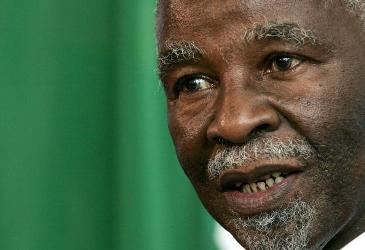Bashir & Salva Kiir to meet in January to boost talks on rebels’ issue
December 19, 2012 (ADDIS ABABA/KHARTOUM) – Presidents Omer Al-Bashir and Salva Kiir will meet next January in Addis Ababa to discuss the stalled implementation of the Cooperation Agreement they signed in 27 September, particularly the issue of Sudanese rebels.

Khartoum insists that Juba has to end its links with the Sudan People’s Liberation Movement- North (SPLM-N) and Darfur groups before to allow the exportation of South Sudanese oil through its territory.
Abdel-Rahim Hussein, Sudan’s defence minister and head of the Sudanese negotiating team said that the meetings of the joint political and security committee achieved a breakthrough and agreed on over 80% of the pending issues.
He further confirmed reports from Addis Ababa that Sudanese and South Sudanese president will meet in the margins of the African Union summit next month in Addis Ababa in a bid to boost the on ongoing talks over the rebels’ issue.
The minister who was speaking to reporters at the Khartoum airport said it was the first time the two parties agree that the rebel presence is a problem dissevering to be tackled.
“This time, it was agreed that it is a crucial issue and must be discussed,” he said alluding to South Sudan’s denial of the presence of rebel groups in its territory.
Late on Tuesday, Thabo Mbeki, the African Union mediator and former South African president, said the two sides had agreed to take “practical steps” to demilitarise the common border.
He however disclosed that they still disagree over how to dmilitarise Mile 14, which raised much of protests from both sides the Reizagat in Darfur and Malual Dinka in Northern Bahr el-Ghazal.
“The parties continue to agree that it should be demilitarised but they are discussing how to effect that decision,” Mbeki he said on Tuesday.
Mbeki said the two sides have agreed “that steps will be taken immediately to ensure the creation of a safe demilitarized border-zone. They have agreed on where that border zone is: [this means] that any South Sudanese forces that are north of that zone should move south – 10 kilometres away from the centre line, and the Sudan forces would also move 10 kilometers north of that border line.”
Despite the agreement Mbeki said it could take longer than anticipated to effect the decision, particularly due to the lack of water in the areas the troops will be relocated to.
“In the agreement it says within seven days, but in reality it’s going to take longer. And the reason it will take longer is because in particular locations where these troops will be positions there is no water. So work will have to be done to make sure that water is provided for the troops that will be located there,” he said.
South Sudan’s defence minister, John Kong Nyuon, said that an ad hoc commission has been setup to follow up the implementation to the security agreements and to further investigate and monitor should new disputes arises.
In case any complaint comes up “the JPSM [Joint Political and Security Measures] co-chairs will give the task to the ad hoc committee to verify and investigate the allegations and report to the co-chairs,” Nyuon said adding, “if necessary, the issue can be taken to the two heads of state.”
(ST)
